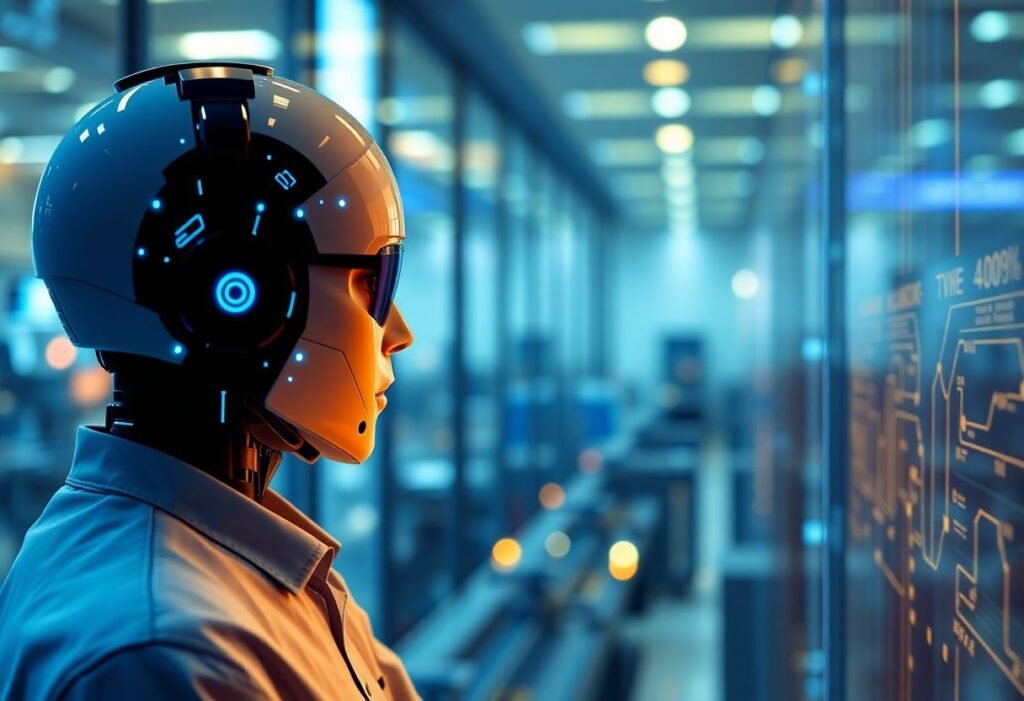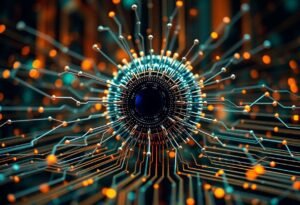The rapid advancement of artificial intelligence (AI) has fundamentally reshaped the job market, creating new opportunities and challenges. Understanding the impact of AI on job market trends related to innovation is vital for businesses and employees alike.
The Transformation of Job Roles Through AI
Artificial intelligence is revolutionizing job roles across various sectors. AI technologies such as machine learning and automation are enhancing productivity by taking over repetitive tasks, thereby allowing humans to focus on more complex problems. As a result, employees are encouraged to innovate and grow their skills, leading to a significant shift towards more specialized roles. Companies that integrate AI into their operations can remain competitive and agile, responding to market demands with increased efficiency. Innovation has become the cornerstone of strategies aimed at leveraging the strengths of both AI and human intelligence.
The Creation of New Job Opportunities
While there are fears about AI displacing jobs, it is critical to highlight the creation of new opportunities. As AI technology evolves, entirely new fields and job categories emerge, such as AI ethics specialists and data privacy officers. The innovation sector is particularly ripe for growth, with startups consistently seeking talent who can conceptualize and execute groundbreaking ideas. Upskilling and reskilling initiatives are essential as the workforce transitions to roles that require AI proficiency and critical thinking skills, enabling individuals to thrive in this dynamically changing landscape.
Challenges Faced by the Current Workforce
The integration of AI into workplaces is a double-edged sword. Many existing workforce members find it challenging to adapt to new technologies, often leading to job insecurity. Employers must understand that assisting their employees through innovation and training programs is vital. Addressing the skill gap is paramount for ensuring a smooth transition where employees feel competent and valued. Companies that support continuous learning and adaptation stand to gain substantially as they foster loyalty and drive overall productivity.
AI and the Demand for Human Skills
With AI taking over many routine tasks, there is an increased emphasis on human-centric skills such as emotional intelligence, creativity, and vital thinking. These skills elevate the role of the human worker in problem-solving and strategic planning within organizations. Businesses must invest in developing their workforce’s capabilities in areas that complement AI and automation. By prioritizing such human skills, companies can find a harmonious balance between technology and the essential human touch necessary for comprehensive service delivery.
The Role of Education in the AI Transition
The education sector plays a crucial role in preparing future generations for a workforce increasingly impacted by AI. Curricula must evolve to incorporate AI literacy, ensuring that students are well-equipped with both technical skills and soft skills. Collaborative initiatives between educational institutions and industries can foster an environment of innovation and creativity, enabling graduates to seamlessly transition into the workforce. Preparing students for the demands of the AI-driven economy is essential for maintaining competitiveness in the global market.
Strategic Adaptations for Businesses
For businesses, adapting to the AI-driven landscape requires strategic planning. Companies must assess their operational processes and identify areas where AI can enhance productivity. This requires not only investment in technology but also in human capital. Developing a culture of innovation within the organization can lead to new products, services, and efficiencies. Organizations that embrace AI as a partner in progress rather than as a threat will likely succeed in navigating the complexities of modern job trends.
Disclaimer: This content is intended for informational purposes only and does not constitute professional advice.





















